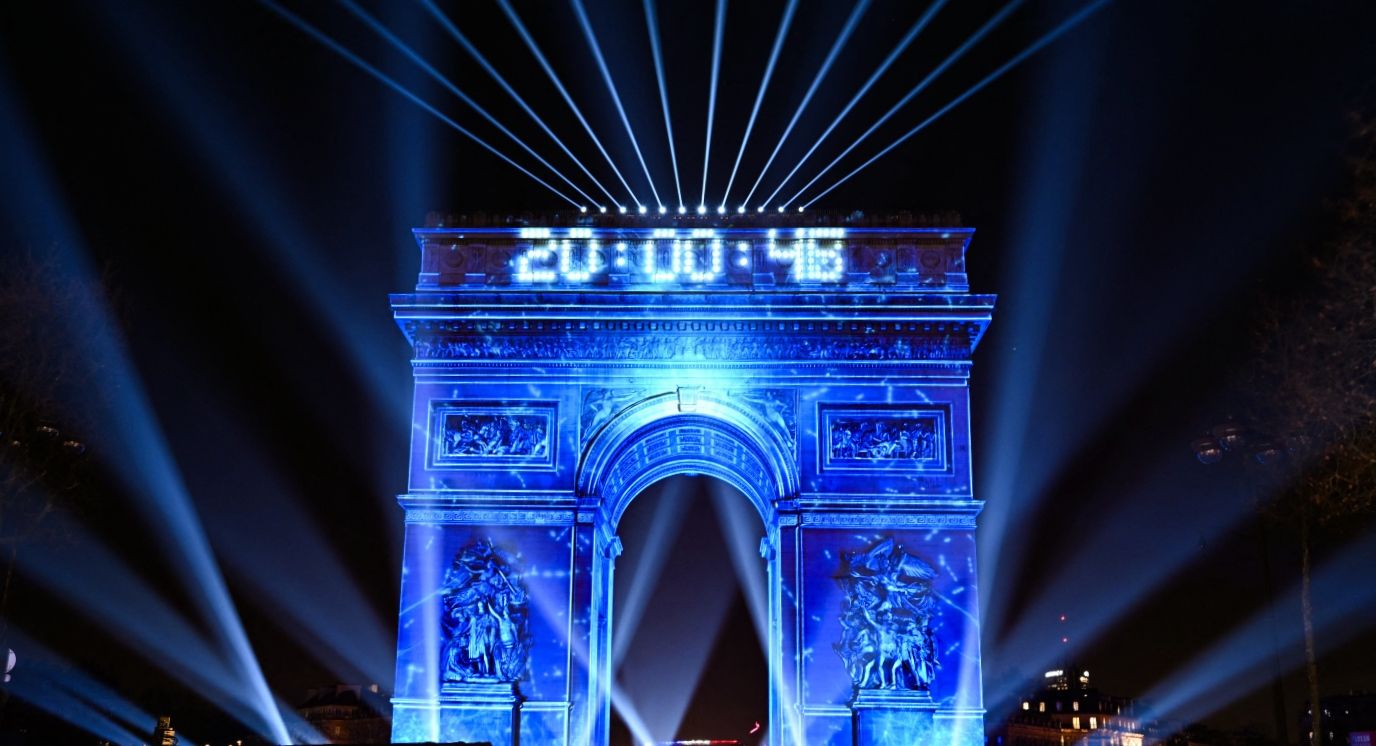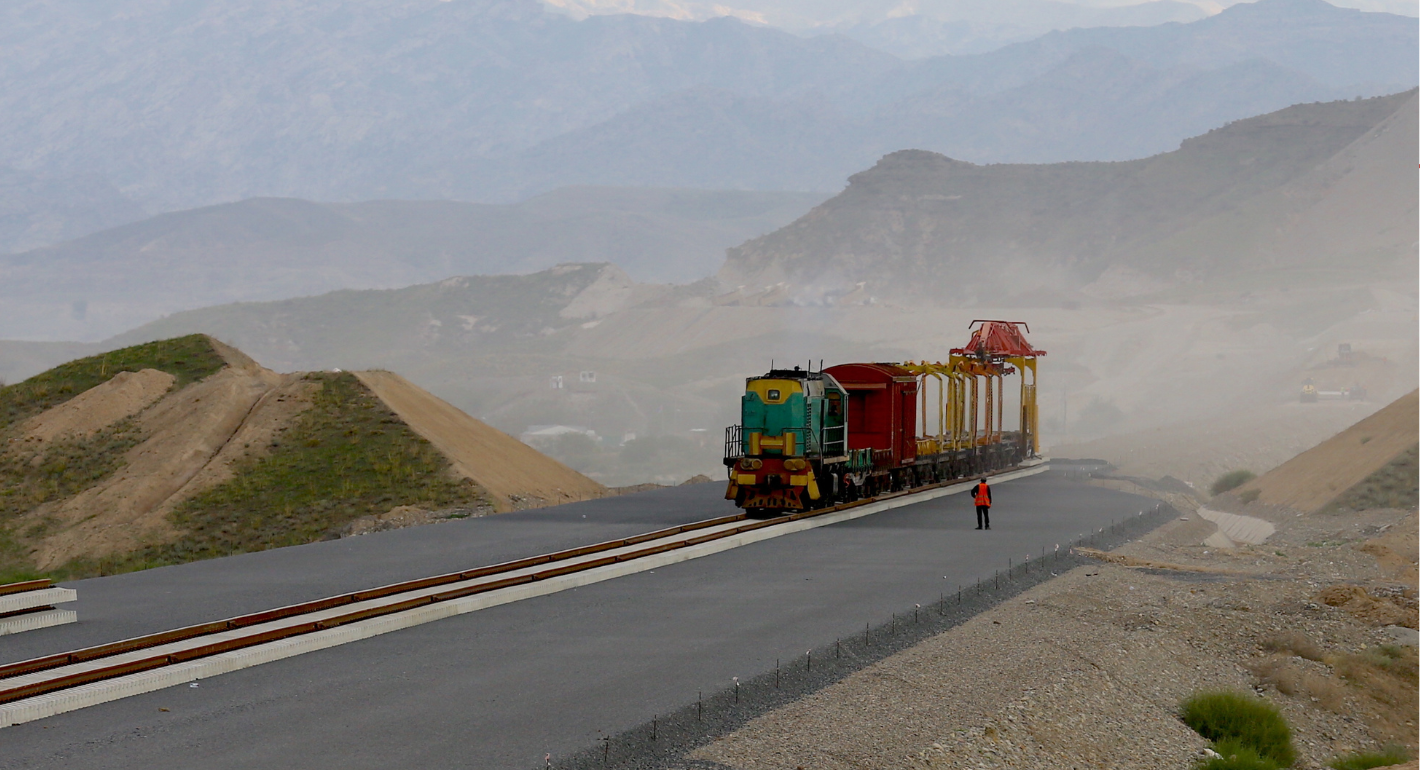Jana Puglierin
Head of office and senior policy fellow at ECFR Berlin
It says a lot about 2024 if the best I can come up with is the sudden overthrow of Bashar al-Assad in Syria by a former al-Qaeda entity. One less horrible dictator and a setback for Iran and Russia! At the same time, we don't know that what comes next is necessarily better. Syria could become easily a battleground in the struggle for power and regional dominance.
The biggest challenge for Europe in 2025 will certainly be Donald Trump coming to power in the United States. This will present us with many difficulties: on European defense, on China and climate policy, and on trade issues. Trump’s victory will strengthen those forces in Europe that want more nationalism and less European cooperation—and that have also declared war on their “deep states.”
I fear the worst for Ukraine. If the war continues on its current trajectory, it will end in a Russian victory due to Ukrainian exhaustion. Trump wants to reach a deal and does not care what it looks like, just that it happens. A “neutral” Ukraine without security guarantees is likely to become a failed state. That would not only be a disaster for Kyiv but for all of Europe.
Pol Morillas
Director of the Barcelona Centre for International Affairs (CIDOB)
In terms of positive developments, the Bletchley Declaration on artificial intelligence, felt in regulation efforts in 2024, enabled geopolitical rivals to find common ground and shared principles on potentially extremely disrupting technological developments. It shows that great powers, particularly the United States and China, can advance agreements in areas of shared concern, even at times when conventional multilateral frameworks and organizations are increasingly questioned and weakened.
With Donald Trump’s reelection and the consolidation of nationalist leaderships in many countries, two particularly challenging developments will shape international politics. Diplomacy will be increasingly portrayed as a one-man show pretending to represent national interests. Ego-politics and individualism will be the basis on which foreign policy priorities are built. This will come at the expense of the nuances and complexities of exercising world politics.
Second, declaratory and grandiloquent objectives will take precedence over just and consensual peace agreements. Ceasefires or truces in conflicts will not be matched with durable peace solutions. At best, negative peace—or the absence of open conflict—will be achieved, but positive peace frameworks, seeking justice, reparation, durable solutions, or even socioeconomic reparation will not find adequate and comprehensive diplomatic efforts. 2025 will be a year of diplomatic fireworks, not so much of new and sustainable peace architectures.
Minna Ålander
Research fellow at the Finnish Institute of International Affairs
The greatest highlight this year was Sweden’s NATO accession in March. A further delay would have meant cumbersome workarounds in NATO’s new regional defense plans.
In Northern Europe, a positive dynamic has been the increasing cohesion of the Nordic-Baltic region. The Nordic and Baltic countries are united in their determination to keep supporting Ukraine—despite their small size, these countries’ combined support for Ukraine far surpasses that of any large European country—and in their shared bleak assessment of Russia’s future.
In Europe, Germany’s era as the preeminent European power is likely coming to an end, with its struggling economy and challenge from the fringes to the political party system. With also France in political turmoil, the smaller states have to step up to fill the leadership vacuum.
Globally, the post–Cold War world order is clearly in a process of upheaval. With the fall of the Assad regime in Syria, developments in the Middle East might well end up impacting the dynamics of any potential ceasefire talks between Ukraine and Russia in 2025. China’s activities in Europe are something to watch, with Chinese ships having developed an appetite for damaging maritime infrastructure in the Baltic Sea.
Erik Brattberg
Senior vice president at Albright Stonebridge Group
2024 brought several positive developments. First, EU tariffs on Chinese electric vehicles were agreed, despite vocal opposition from Berlin. While the EU’s tariff rate remains lower than comparable measures imposed by the United States and Canada, it nevertheless demonstrates that European Commission President Ursula von der Leyen’s derisking agenda has some teeth.
Second, the G7 agreed to use revenue from frozen Russian sovereign assets to guarantee $50 billion in loans for Ukraine through 2025. This milestone could pave the way for eventually leveraging the full $300 billion in frozen assets to fund Ukraine’s future reconstruction.
Finally, the EU-Mercosur free trade agreement announcement is a major win for the EU’s open strategic autonomy agenda following twenty-five years of stalled talks. It also represents progress in the EU’s efforts to diversify trade ties away from China and attempt to make up for expected transatlantic trade tensions under Donald Trump.
Looking toward 2025, the major challenge for Europe is not geoeconomic, however—it is geopolitical. The current trajectory of Russia’s war in Ukraine and the potential for a Trump-brokered ceasefire agreement next year means that European capitals must seriously consider the option of placing troops inside Ukraine to provide credible security guarantees to ensure such a deal has staying power.
Justyna Gotkowska
Deputy director of the Center for Eastern Studies (OSW)
The political stability in Poland and the Nordic-Baltic states along with their increased cooperation stand out among this year’s negative domestic developments in major European countries. The dissolution of the malfunctioning German coalition made Scholz a lame duck. Even if French President Emmanuel Macron has some agency in foreign policy, the unstable French governments are a headache also for European security policy. The new Labour cabinet in Britain is inward-looking and without much appetite for leadership. In this context the Polish-Nordic-Baltic cooperation is noteworthy, with Poland additionally reinvigorating Weimar plus format.
Trump, with his unpredictable policy on military support for Kyiv and on how to end the war, will be the biggest challenge for the disorganized Europeans. In Europe, discussions need to speed up on how to approach Trump with a strategy, increased military commitments, and with an idea on security guarantees for Kyiv, parallel to keeping deterrence and defense in Europe strong. Notwithstanding, one needs to prepare for a prolonged war.
Trump might also bring further disruption to the highly unstable Middle East by increasing pressure on Iran and extending support to the militant Israel amid the Syrian turmoil of forming a new administration. Will the Europeans be able to have a say on the developments in this region?
Thorsten Benner
Co-founder and director of the Global Public Policy Institute (GPPi)
India’s election this year turned out to be a true celebration of democratic strength sending a powerful signal to the whole world. 642 million citizens participated during a total of forty-four days of voting in the world’s largest democracy with a record turnout by female voters. The results were much closer than most, including Prime Minister Narendra Modi’s Bharatiya Janata Party, had predicted, decisively reaffirming India’s political pluralism.
Donald Trump’s election not only casts doubt on Ukraine’s ability to withstand Russia’s invasion but also the future of the UN humanitarian system, which disproportionately relies on U.S. funding. With the gulf between humanitarian needs and delivery already wide, Trump may push the system past the brink. Unlike during his first term, this time around European nations like Germany won’t be available to fill the gap as they are administering deep cuts to their own humanitarian budgets.
The first shocks from the deindustrialization of China helped bring about Trump and Brexit but spared Germany. Both German Chancellor Olaf Scholz and his conservative rival Friedrich Merz seem unable to imagine that Germany’s industrial base could be the main victim of China's second shock unless they push for decisive action on unfair competition. If they don’t rethink their complacency, they risk turbocharging Germany’s ugly populist backlash.
Nathalie Tocci
Director of the Istituto Affari Internazionali
The unexpected good in 2025 was the fall of Bashar al-Assad. This doesn’t mean that Syria’s future is rosy, but it doesn’t detract from the fact that the fall of one of the bloodiest dictators of the last half century is an unambiguous positive. This also should serve as a reminder that dictatorships, even when apparently stable—not least because it’s hard to look into the authoritarian black box—are inherently fragile.
2025 promises plenty of bad and ugly. Two issues to watch are Ukraine and Iran. Regardless of whether President-Elect Trump succeeds in brokering a ceasefire or not, the United States is likely to disengage from Ukraine. This means that the country’s defense will be mainly a European responsibility. In the Middle East, we could see further escalation between Israel and Iran, possibly with a war that could draw the United States in. But there is also the possibility of relaunching nuclear diplomacy.
The bad and ugly are not a given. And Europeans should do their part to ensure they do not materialize.
Judy Dempsey
Nonresident senior fellow at Carnegie Europe
The reelection of Maia Sandu as Moldova’s president was a pleasant surprise in 2024. It was the first time in the country’s history that an incumbent was reelected. Sandu and her staunch pro-EU supporters had to counter an intense propaganda campaign by Russia which won’t stop trying to destabilize Moldova. Now is the time for the EU to reward Sandu’s extraordinary resilience and courage with more targeted economic assistance and by speeding up the EU accession process.
Another heartening development was the trade deal between the EU and the Latin America Mercosur group of countries. It’s a geostrategic and economic plus for both sides. In the making since 1999, the treaty has still to be approved by all twenty-seven EU national parliaments. Poland, Italy, and France will do everything to protect their farmers and other interests. Over in Latin America, Brazil, Argentina, Paraguay, and Uruguay, see how the economic gains could be an alternative to growing Chinese influence in the region.
But in 2025, how Russia’s war in Ukraine is going to end is a top concern. A bad deal is bad for Eastern Europe and the entire continent. Second is the fragility of democracies. With few exceptions, Europe’s leaders are not taking this threat seriously.
Kristi Raik
Deputy director of the International Centre for Defence and Security, Tallinn
The new European Commission’s casting gives hope that there are (at least some) EU leaders who think strategically and are determined to defend European interests and values amid global geopolitical rivalry. Commission President Ursula von der Leyen has provided strong leadership in supporting Ukraine. The EU’s new foreign policy chief Kaja Kallas brings fresh energy and courage to strengthen European security and the EU’s voice in the world (admittedly, being an Estonian, I might be overly excited about her nomination).
As for the coming worries, first, my biggest concern is that Ukraine will be pressured to accept a bad deal with Russia, as Donald Trump will be keen to deliver on his promise to stop the war. Giving land to Russia and blocking Ukraine’s path to NATO membership would be an invitation for the Kremlin to continue its efforts to undermine the European security order.
Second, I’m concerned that democratic backsliding in Europe and across the world will continue. Russia, with the help of local proxies, continues to exploit cleavages in Western societies, interfering in elections and undermining free media with disinformation. Chinese influence is increasing in a more subtle, creeping manner, threatening to curtail human rights and freedoms in democratic states and to make the global order more favorable to autocracies.
* Dear friends, colleagues, and readers,
This is the last Strategic Europe blog of 2024. It was a year full of challenges and unexpected events—one that, like 2023, showed how strategically stretched EU member states are. But as you can see from this Taking the Pulse, there were also some positives. We wish you happy holidays and will be back with a bang on January 2, 2025.
~ Rym Momtaz









